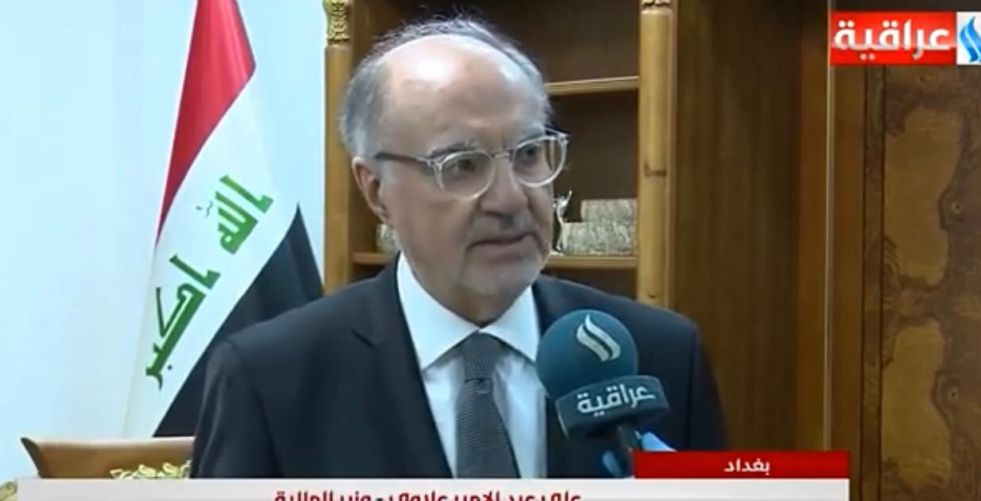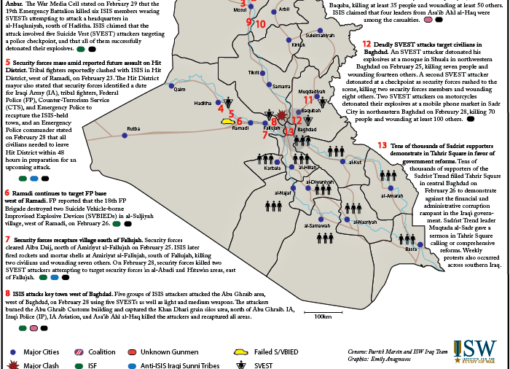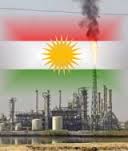Iraqi Finance Minister Ali Allawi announced that the 2022 budget, which the ministry began preparing a few days ago, will have a reform dimension, as it “different from previous budgets” and reflects “the reality of Iraq’s obligations.”
The minister explained in press statements that the ministry will seek to submit this new budget to parliament before the early parliamentary elections scheduled for October, adding that it will be a “reform budget, but it may be politically difficult.”
He said that the ministry “tried in the previous budget to do a similar thing,” as it “presented the budget in a way that shows officials the size of Iraq’s real obligations without paying it into arrears corners, so the number came to a large, and was not politically acceptable, so it was amended and the budget was issued” in its current form.
By this, Allawi most likely hinted at the difficulty of passing the new budget, given the high value of its deficit, as happened in the previous budget.
In the proposed 2021 budget bill, which the government submitted to parliament, the value of the deficit was estimated at 49 billion dollars, but the deputies made up the difference by canceling debts and dues from the state in exchange for energy sources from the account, especially dues for Iranian gas and energy, and other payments for infrastructure.
The value of the deficit in the 2021 budget, as approved by parliament, amounted to 19.8 billion dollars, compared to 23.1 billion dollars in 2019, knowing that Iraq did not approve the 2020 budget due to political tension.
The total value of revenues in the 2021 budget amounted to about 69.9 billion dollars, calculated based on crude oil export on the basis of a price of 45 dollars per barrel, and an export rate of three million and 250,000 barrels per day.
As for the value of the 2021 budget, it amounted to $89.7 billion, about 30% lower than the last budget approved in 2019.
Allawi explained that the price of a barrel in the new budget will be $50, which is an adjustable figure, but the value of a barrel of oil in the market is currently higher. Much more than 60 dollars.
Iraq, the second largest oil producer in the Organization of the Petroleum Exporting Countries, is going through its worst economic crisis.
The poverty rate in the country has doubled in 2020, and 40% of the population of 40 million is considered poor, according to the World Bank, while the Iraqi dinar has lost 25% of its value.
Corruption, which has cost Iraq twice its total gross domestic product, i.e. more than $450 billion, is the main concern of Iraqis who suffer from a shortage of electricity, hospitals and schools. However, the minister said that Iraq’s financial situation has improved this year due to “the rise in the price of oil and the change in the exchange rate of the dinar.”
In the meantime, Iraq is negotiating with the International Monetary Fund on a loan amounting to between 3 to 4 billion dollars, as Allawi explained, hoping to reach an agreement with the Fund by the end of the year.
He explained that this “borrowing is of a monetary nature and gives credibility to the reforms” that the ministry wants to implement, and that “their end depends on our current situation and the 2022 budget if we are able to present it to parliament before the parliamentary elections.”
Source: Asharq Al-Awsat, 7 August, 2021
https://english.aawsat.com/home/article/3119676/iraq-seeking-%E2%80%98realistic%E2%80%99-budget-2022








Comment here